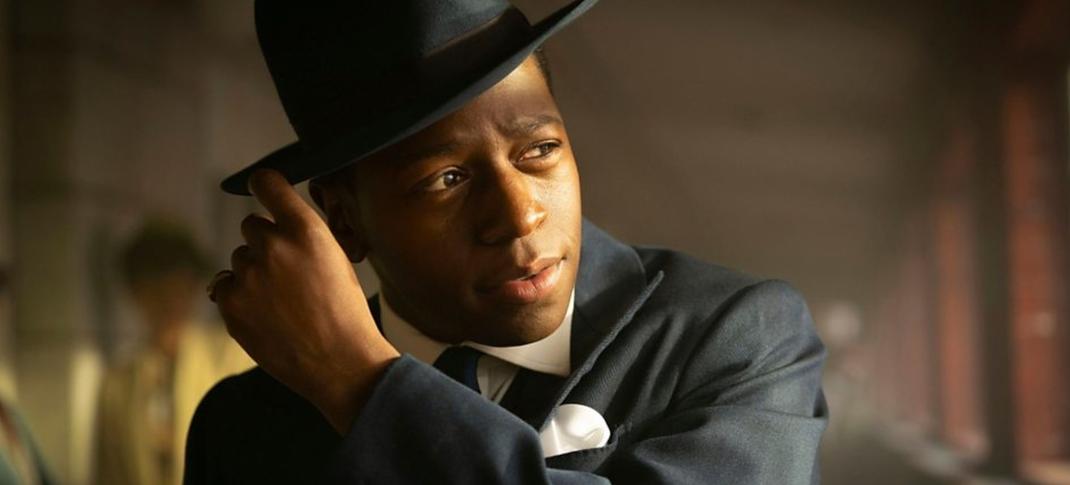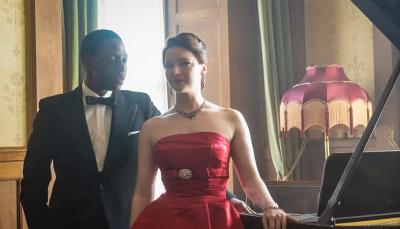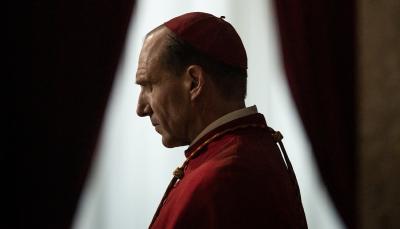The BAFTA 2025 Winners Fit The Era: Could Have Been Worse

David Jonsson as FitzWilliam in Murder is Easy
BBC/Mammoth Screen/Anne Binckebanck
There’s nothing cool about a live awards telecast – the scripted bits, teleprompter dependence, and constant pauses to wait for talent in transit sucks a lot of the snappy pizazz that a night of celebrating artists deserves. Added to this is the fact that British showmanship feels weirdly forced and off-key when it’s scaled up to an Oscar-sized event, combined with British joke writers writing safe quips about American film and internet culture is also lame and the fact that the BAFTA awards aren’t even live so if you’re on social media, you can easily access all the winners an hour or so before they’re announced on your broadcast feed…
Well, it’s not hard to see why BAFTA 2025 is best enjoyed as a series of acceptance speeches with no fluff in between – even if the winners lacked a little imagination.
The BAFTA awards are but a small part of the overall British Academy of Film and Television Arts charity work, but they are the most public. This year confirmed the voting body’s desire to nod along to the most heavily campaigned Oscar picks – every 2025 winner from the acting, directing, screenplay, and Best Film categories is nominated, if not a frontrunner, at the Oscars. After softening the reach of their specialist juries (which were brought in after a year of all white acting nominees), the last couple of years have been business as usual: a more conservative slant on popular Oscar picks inside a cringe-inducing entertainment broadcast.
(I love David Tennant, he has good hosting energy and looks great in his Crowley red hair, but a belabored performance of “500 Miles” to start the show was too squirm-inducing for this Scot to bear.)
(Ed Note: Meanwhile, SOME of us sang along. Loudly.)
That’s not to say there weren’t surprises. A flabbergasted Jesse Eisenberg picked up Best Original Screenplay for A Real Pain (co-starring Kieran Culkin and Brit hero Will Sharpe) and immediately listed the people who didn’t expect him to win – including the people who sat him far from the stage. Off-the-cuff, he paid homage to his wife whose love of travel, frank views on the “unexceptional” nature of grief, and Marxist-Leninist principles guided the film – and gave another cracker of a speech when he picked up the Best Supporting Actor trophy on behalf of co-star Kieran Culkin, espousing his family loyalty. A Real Pain is very much one of those dialogue-driven “directed by an actor” films with big themes on its mind but less skill in digging into them – but everything good about the film was visible in Eisenberg’s speeches.
Another surprise winner was Mikey Madison when her performance in Anora won Best Actress, and tears were flowing for Emilia Perez’s Zoe Saldaña for Best Supporting Actress. However, the night's best speeches came from homegrown British talent that honored emerging talent and certified legends.
It was a fist-pumping victory for fans of David Jonsson (Murder is Easy) when he was announced as the public’s pick for the EE Rising Star award, and the Royal Festival Hall audience exploded after his humble but rousing acceptance speech on behalf of the dreamers making art for the people. “Star, I don’t know, but rising, I guess,” was his witty, affecting final remark.
As the recipient of the BAFTA Fellowship, the iconic Warwick Davis gave words of wisdom, cheeky asides, and a moving tribute to his late wife that, together with Jonsson, helped make this room feel like a special one to be in between the more predictable awards.
Sidenote: Every awards show shows a mini highlight reel of awardees for smaller, more technical awards, but BAFTA seemed to pack in half of its awards into its montages – including heavy hitters like Best Score and Best Cinematography. These are pretty important elements of movies, guys!
(Alas, we had to make room for a pitchy rendition of “Greatest Day” by Take That.)
Kneecap’s win for Outstanding Debut for director Rich Peppiett, who made allusions to oppressed people fighting for their homeland in line with the band’s strong Palestinian solidarity, but their success and message was overshadowed by Conclave, the adequate but over-awarded Vatican papal election drama which won four awards (the same number as The Brutalist, the other most awarded title) and doubled-down on its vague liberal message that, while democracy may be under threat, elections are very noble, and only inherently flawed in a noble way.
There’s the glaring oversight that the election in Conclave isn’t democratic – a very select amount of high-ranked men decide on the future of a large, traditionalist religious body – but that didn’t matter to BAFTA, who ate up all the Good Actors in Traditional Costume Being Serious drama to the tune of Best Film, Best Adapted Screenplay, Best Editing, and Outstanding British Film. The general pompous aura of art being a legitimate savior from the horrors of the world (so long as it is non-specific and non-confrontational) pervaded through the ceremony’s multiple Trump jabs, and colored the frustrating lack of self-awareness that BAFTA awards have yet to shake – we are aware Britain has its own fascism problem to worry about, guys?
The 2025 EE BAFTA Film Awards are streaming on BritBox. The BAFTA Television Awards will stream and air on Sunday, May 11, 2025, on the BBC and BritBox.




